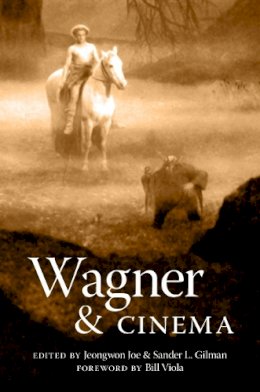
The work of Richard Wagner is a continuing source of artistic inspiration and ideological controversy in literature, philosophy, and music, as well as cinema. In Wagner and Cinema, a diverse group of established and emerging scholars examines Wagner's influence on cinema from the silent era to the present. The essays in this collection engage in a critical dialogue with existing studies—extending and renovating current theories related to the topic—and propose unexplored topics and new methodological perspectives. The contributors discuss films ranging from the 1913 biopic of Wagner to Ridley Scott's Gladiator, with essays on silent cinema, film scoring, Wagner in Hollywood, German cinema, and Wagner beyond the soundtrack.
Product Details
About Joe Curtis
Reviews for Wagner and Cinema
Jrnl American Musicological Soc JAMS
[Wagner and Cinema] looks at the plethora of senses in which Wagner's music and different kinds of Wagnerian reception histories have informed cinematic production throughout the twentieth and twenty-first centuries. ...Wagner and Cinema is a text that will no doubt be consulted for many years henceforward.Issue 24, 2012
Nathan Waddell
Scope
[T]he book . . . present[s] the reader with a strong and very varied attempt to discuss the relation between Wagner, opera and cinema and includes a vast array of densely detailed information covering large historical periods in many of its well-written essays.Issue 29
Screening the Past
A useful resource for serious students of film, theater, and/or music, the book includes numerous photos, and helpful music notation enhances the text. . . . Recommended.
Choice
Wagner & Cinema provides a comprehensive discussion of its subject . . . [I]t offers an excellent introduction for scholars interested in Wagner's influence on film and offers a starting point for future studies. 34/2 (2011)
German Studies Review
The essays in this collection engage in a critical dialogue with existing studies—extending and renovating current theories related to the topic—and propose unexplored topics and new methodological perspectives.March 01, 2010
Camero-Stylo
